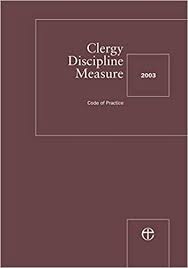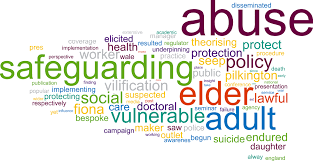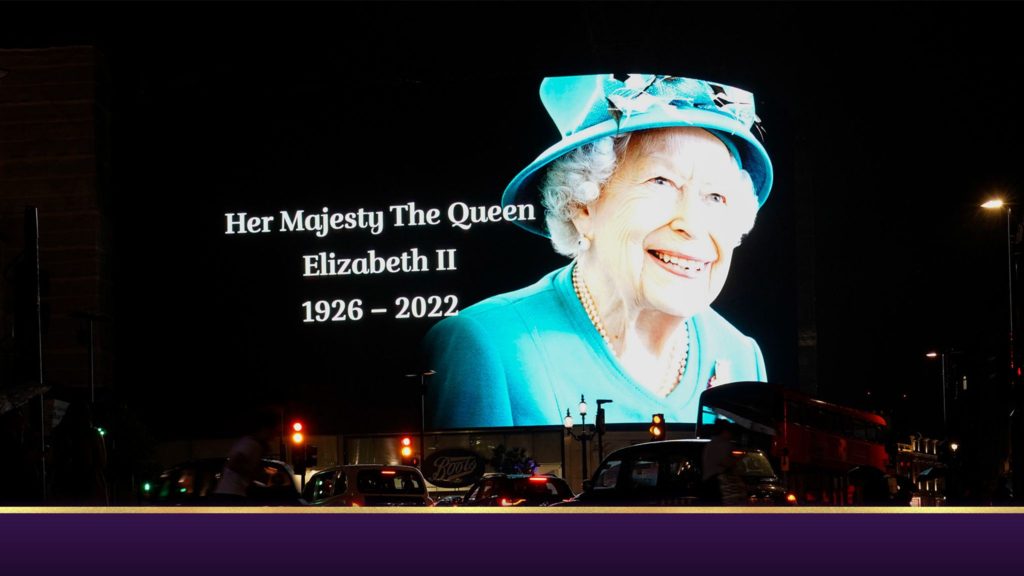
I recently had cause to read through the summary of the Clergy Discipline Measure (2003) as set out on the official CofE website. Although the Measure is now due to be replaced with a new revised version, this original attempt to put something in place to check malfeasance among the clergy, seemed eminently sensible and measured. As I read it, I tried to shut out the reports of CDM disasters that I have heard about that have taken place since it came into effect in 2006. Some have reached the public domain while others have been privately shared with me as a concerned blogger. Surely the combination of a qualified legal adviser and a diocesan bishop, which the Measure sets up as a quasi-legal determining body to deal with clergy disciplinary cases, would have the wisdom to administer truth and justice in every case that comes before it? Bishops, we would hope, possess the status of trusted leaders and will only be appointed to their position because they have gained the respect and confidence of those who have worked alongside them over their years of ministry. Are not such figures all able to demonstrate the qualities of pastoral wisdom and goodness? With these qualities, surely it is impossible for them, with the help of legal guidance, to allow any injustice to occur when dealing with clergy accused of malfeasance? Sadly, this hope sometimes turns out to be misplaced.
My reader will not be surprised to discover that the CDM process has, in many instances, failed to live up to its aim to be a simpler, more straightforward method than the old consistory courts for dealing with problems of discipline among the clergy. When I review some problem areas in its implementation, there is one thing that inevitably creates problems in providing justice. This can be summed up in the single word – malice. In using this word, I am far from suggesting that every disciplinary case in the Church involves the presence of any malice. No doubt there are dozens of cases which are dealt with equitably and justly. I would hope that most of the cases that come to the attention of the Diocesan bishop and his legal adviser are responded to expeditiously and well. These are never heard of again. It is only when malice comes to be a factor within the process that real problems can occur.
Malice can come into CDM processes from at least two directions. The first direction is from anyone, lay or clerical, who dislikes a particular clergyperson and decides that complaining about them will somehow make them disappear from the post they currently occupy. Most of these malicious complaints are picked up at an early stage and are quickly dismissed. But the very fact of facing a CDM may be extremely demoralising to the respondent. They will live with uncertainty and stress for some time and, even if they are eventually found innocent, their self-confidence as a pastor to their flock may have been irrevocably undermined.
The second potential scope for malice in the CDM process is more serious. This is when a member of the clergy finds themselves the object of dislike or even enmity by other senior clergy who then use the CDM processes to harass them. A failure to be neutral on the part of a diocesan bishop is not unheard of, and this hostility is extremely difficult to counteract by the affected clergy. The Christ Church drama demonstrated the way that the CDM process became used at one stage to further the deliberate malice against the Dean from other clergy as well as members of the College. Few of us would have the necessary stamina to withstand constant attacks of this kind. One of the most depressing things about the saga is the way that official church structures, in the form of the NST and the diocese of Oxford, had allowed an evidently spurious CDM claim to be pursued for months against the Dean between March and September 2020. Seven allegations against the Dean were eventually dismissed. It was especially striking in this case that no vulnerable person existed on whose behalf a safeguarding inquiry could properly have been instigated. There was actually no complainant individual at all: the issue had been entirely fabricated by the Dean’s enemies. Eventually it dawned on the church authorities that their processes had been highjacked by the Dean’s enemies and the complaint was thrown out. In the meantime it had taken several months of deliberation to arrive at this conclusion. It was quite clear to those of us on the outside, that malevolence was at work and the whole CDM process was being undermined and manipulated by what appears to be a very public manifestation of spite. Even a single example of church processes being manipulated by the malice of identifiable individuals helps to destroys our ability to have confidence in such processes. If a bishop, and here I have examples in my mind, ever uses the church disciplinary processes to undermine a member of his/her clergy for reasons that have to do with dislike, then the integrity of that bishop as well as the whole CDM process itself is bound to be seen as flawed and without credibility.
Another serious problem with the CDM process has been the inordinate time for some investigations to take place. The ones we hear about are those that seem to drag on interminably, putting a clergyperson and his/her family under appalling stress. I am not sure that I would be able ever to recover from six months enforced ‘gardening leave’. This talk of suspension brings one on to another issue which is the fact that it is very unclear why some, but not all, clergy are forced to ‘stand back’ while their case is considered. This inconsistency can give rise to massive injustices. George Carey was forced, in a fanfare of publicity, to surrender his permission to officiate for a time because it was discovered that the known abuser, John Smyth, had attended the college, Trinity College Bristol, while Carey was principal. Smyth’s attendance was part-time, and he probably only rarely visited the college. Why the NST made such issue of this detail, when a rapid examination of facts clearly exonerated Carey from any culpable behaviour, is a mystery. The Smyth allegation clearly upset Carey quite badly. Those looking on must have wondered if this was an example of a weaponised disciplinary action. Was it that Carey, now in his 80s and on the edges of the national Church, provided an opportunity for those who are senior in the safeguarding world to show that they can act tough to protect the vulnerable? The same solicitude for protecting the vulnerable was not taken in a far more serious ongoing case where there is an unresolved CDM. This particular individual, known to readers of Private Eye, has allegedly committed far more serious misdemeanours. Not only is this clergyman allowed to continue in his current post, but he is also permitted to apply for a senior post elsewhere in the Anglican Communion. Having an ongoing and unresolved CDM against you is, apparently, no impediment to promotion in the Anglican Church. A bishop issuing a ‘safe to receive’ letter for a clergyman with an unresolved CDM may be committing a falsehood, but he also may be wanting to remove a suppurating sore out of his jurisdiction. In popular terms, the bishop is flinging a dead cat over the wall for someone else to deal with!
If we were able to claim that the CDM process is conducted everywhere with perfect justice and impartiality, we would still be left with fact that the whole system is often shrouded in secrecy. Sometimes we are told a lot about the individuals caught up in the process; on other occasions we are left in the dark. I probably hear more about individual cases as people write to me. I am quietly appalled at the level of malice that is found in some of these cases where things have gone badly wrong. Speaking very generally, the complaint I hear again and again is that those at the highest levels of authority in the church are far more interested in shutting down inquiries into bad behaviour than in finding justice and reconciliation. Meetings with bishops are sometimes described as experiences of being bullied so that the victim will not seek to reveal their story. The focus is on the reputation of the institution and its officers rather than on putting right a past wrong.
A hierarchical episcopal church like the Anglican Communion has the chance to be an excellent model for Christian bodies everywhere. For this model to work well, however, there has to be complete integrity within the structure and among the leaders, so that every member of the body has confidence and trust in them. If any of these episcopal leaders engages in malice or dishonesty, it does not take long for a cancer of suspicion to spread across the whole body. It is also not easy to be a bishop when previous holders of this office have spent time in prison or others are found to have involved themselves in lies and dishonesty in order to defend the institution. The statistics that were revealed recently about public attitudes towards public institutions, show a significant decline of trust toward the Church and the clergy who lead it. The bishops of the Church of England should perhaps be spending far more time in discussing how to communicate their absolute integrity to the ordinary people of Britain. Churchgoing Christians also need to show themselves as decent wholesome people before anyone will want to hear what they wish to communicate about God. At present we have been witness to too much outright seediness in our Church for the outsider to feel attracted to what we may have to offer.






